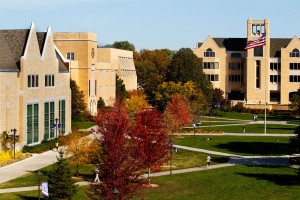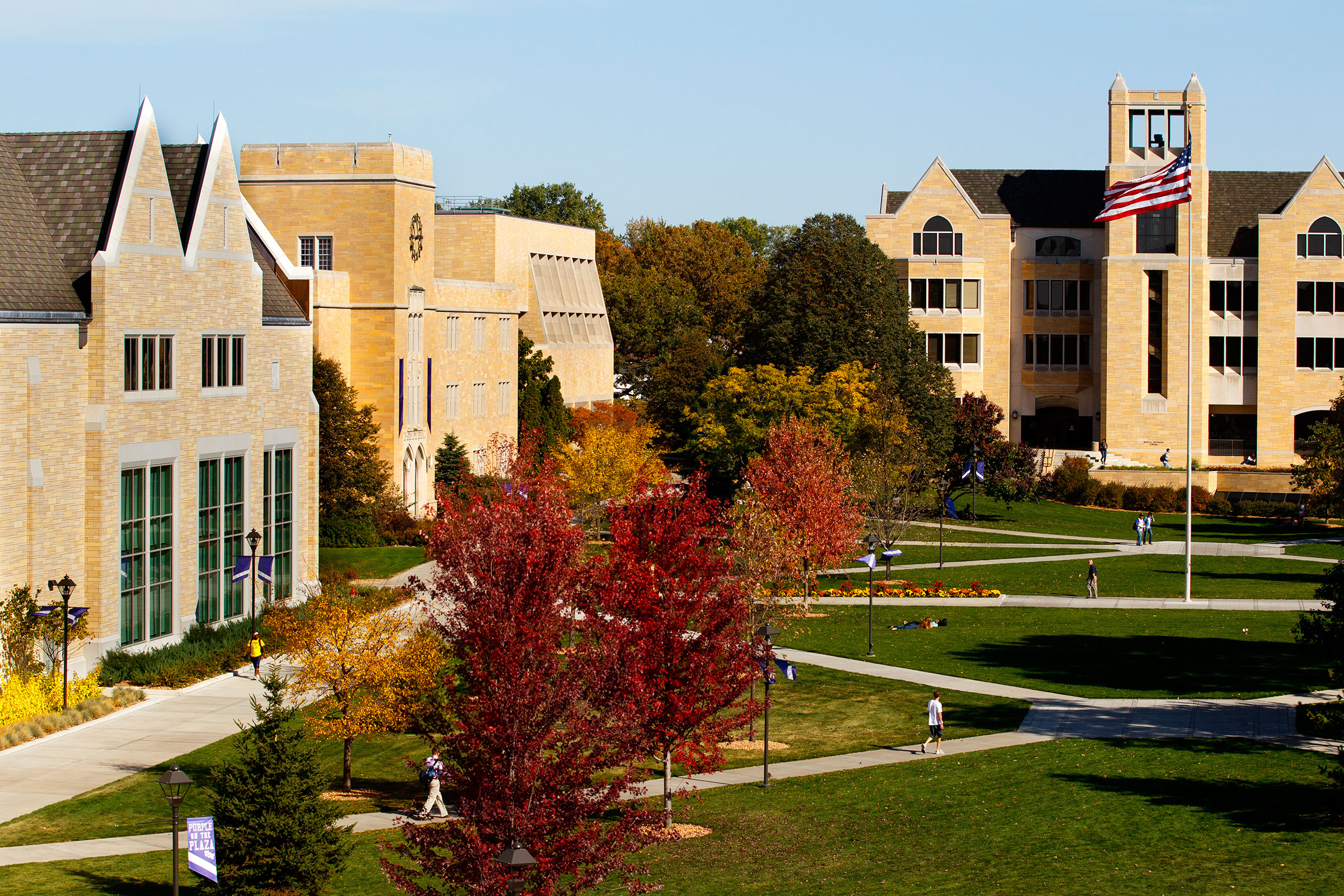After 2 ½ years of preparation that involved an extensive self-study, the Higher Learning Commission will review St. Thomas for re-accreditation, a process by which an institution proves it has met standards established by the commission and is qualified to receive federal financial aid and research grants.
Lucy Payne, accreditation liaison officer, and self-study co-chairs Marty Johnston and Wendy Wyatt led more than 50 members of the St. Thomas community who helped prepare for the Nov. 11-13 visit by Higher Learning Commission peer reviewers.
The Higher Learning Commission appoints a team of six experts who visit the institution to review and analyze the self-study, which examines how St. Thomas meets criteria relating to mission, integrity, teaching and learning, and resources and planning. 
As part of the reaccreditation process, the university will hold an open session at 5 p.m. Tuesday while the HLC is on campus in order to give the reviewers an opportunity to hear from students and gain perspective. Concurrent sessions take place in 3M Auditorium on the St. Paul campus and in Thornton Auditorium on the Minneapolis campus.
Reaccreditation provides assurance to the public that a university has met standards of continuous improvement and also allows the institution to receive federal financial aid and research grants.
“Our students who receive federal financial aid can bring their aid to this institution because we have this accreditation. If we didn’t have that accreditation, those monies wouldn’t be available to our faculty or our students,” Payne said.
In addition, being accredited means that courses are transferable and degrees are accepted when students apply for graduate school. Payne said one of the most important aspects of the accreditation is “knowing you are getting a degree that will take you somewhere.”
The HLC reviewers will begin work Monday morning and will conclude Wednesday afternoon. During its visit, the team will take part in more than 50 meetings with university groups. The team’s full report will be released in early January.
Both Payne and Johnston said they are confident that St. Thomas will pass the review, though Johnston said he is excited to see what suggestions the HLC has to offer.
“Hopefully when external colleagues come in with different eyeballs, they are going to be able to give us some good ideas,” Johnston said. “This isn’t just an academic review; it folds in operations as well, and so it is everything.”
Payne emphasized that being accredited is voluntary and something St. Thomas does to ensure quality and improvement.
Johnston said the accreditation is important because it adds value to the university.
“You want to go to an institution that has the quality, that will get you a job, that will allow you to pay back the loans,” Johnston said. “This is one of the ways nationally that the United States has said, ‘Hey, we worry about our quality of our education. How are we going to tackle this?’ It’s kind of a national auditing of education.”
Payne said she finds it interesting that most domestic students don’t pay attention to a school’s accreditation status when applying.
“Our international students—because it’s such a mark of quality for schools—that’s one of the first questions they ask: ‘Are you accredited and by whom?’” Payne said. “It’s just a different perspective because they’ve got to bring their degree back to their home countries a lot of times, and it’s got to be something that is recognized when they get back.”
Sophomore Abigail Anderson said she knows students who have had issues after attending a non-accredited university.
“My friend went to a non-accredited school her first year and decided that it wasn’t a good fit for her,” Anderson said. “She goes to a different school now, and none of her credits were transferrable. It all comes down to the quality of the education and being recognized by other colleges.”
Senior Erin Windschitl said more students should be aware that attending an accredited university is important.
“It makes the degree that you receive actually mean something,” Windschitl said. “I would say most students do not know about this process at all, or even that St. Thomas is already
an accredited school, or even the basics of what being an accredited school means at all.”
Payne said although the process has required a lot of work, it has ultimately been a good learning experience.
“It’s been a lot of fun. I think the most important thing is we’ve learned how hard people work across campus. We know how dedicated our faculty and staff are, and the students have been wonderful when we’ve gone to them and asked questions,” Payne said.
Johnston agreed that the accreditation process can offer learning opportunities.
“It gives you a lot bigger picture of the institution,” Johnston said. “If we didn’t have that, we wouldn’t improve at the same rate. So to me, this is a really helpful process of saying, ‘Hey, what can we do better?’”
Zach Zumbusch can be reached at zumb8499@stthomas.edu.



